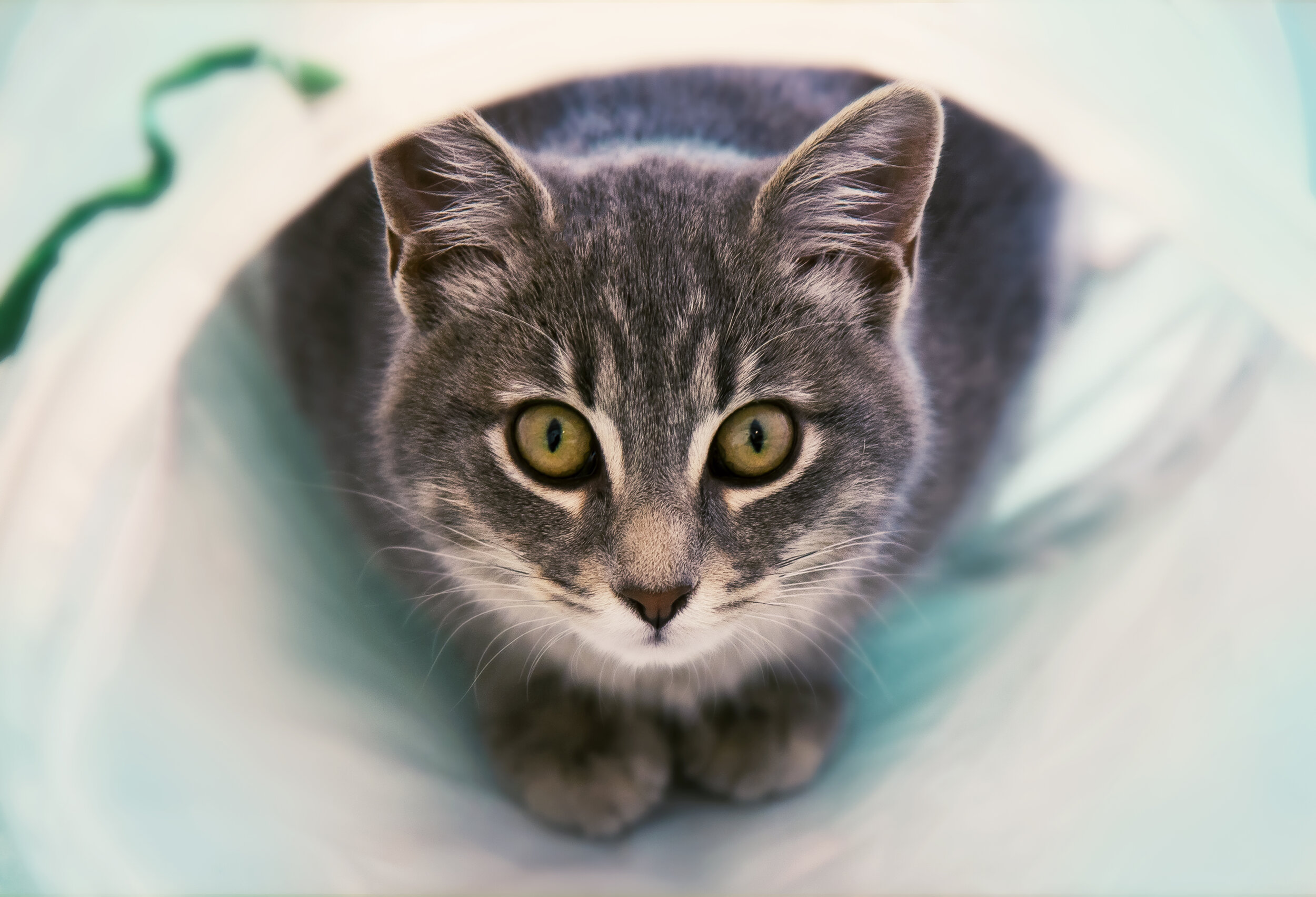Is your cat stressed out?
Many people are feeling anxious or stressed at times about the COVID-19 pandemic that is unfolding around us. As we spend more time at home, our daily routines and patterns are changing.
Just like humans, cats can suffer from anxiety too, which can affect their health and interactions with you. Changes in routine can be stressful for cats, just as it can for us. Whilst your cat may enjoy you spending more time at home, it is big change from what they are used to and this can be hard for cats to deal with. Increased noise levels at home during the day, lack of privacy, a change in feeding routines, in addition to your own anxious behaviour can all be upsetting for your cat.
Understanding your cat’s normal nature and behaviour can help you to identify anxiety and stress in your cat and how to best keep them calm and happy.
Causes of anxiety and stress in cats
Cats may appear independent and confident but they are generally happiest with the familiar. Changes to their routine and unfamiliar things, people and places can make them feel a little anxious. Some of the common causes of anxiety in cats include:
Noise – your cats hearing is extremely sensitive and they can hear higher pitched sounds than humans or most dogs. The noise of other cats, animals or strange sounds with the whole family at home can easily startle a cat. It is important to use a low, soothing voice when talking to your cat. If extra noises are bothering your cat at times, you may want to offer them to a quiet room or vertical spaces, away from all the extra activity and noise where they can relax.
No privacy – Eating, sleeping and toileting are private actions and cats can easily become stressed when they have to do so with others around. Make sure every pet has their own private space for each of these areas.
Unable to escape – running away or escaping to somewhere high is how cats often cope with challenging situations. Cats love vertical space as it provides them with a secure vantage point to survey the world below. Vertical space also allows cats to move away from other pets or individuals if they choose.
Change in routine – cats are happiest with the familiar so try to maintain their routine where possible. If they are taking any behaviour or ongoing medications, these should continue to be given to your pet. Try feeding your cat at the same time you normally would, even if you are home all day. Also, make sure they have fresh litter and water at all times.
Common symptoms of cat anxiety
There are some common signs to look out for in an anxious cat:
Ears flattening
Trembling
Hissing
Swatting
Hair on back of tail going up
Hiding and withdrawal
Change in grooming habits
Trying to escape
Destructive or aggressive behaviour
Biting or chasing people
Failure to use the litter box
Helping an anxious cat
Its important to take a step back and think about the environment from your cats point of view to try and identify what is causing their discomfort. Empathy and understanding is the first step towards helping your cat. Here are a few ideas to helping your anxious cat:
Offer alone time when they need it – everyone needs a break sometimes and this includes pets. If you are home with your family and kids, remember to give your cat a break if they need it. Make sure they have a safe and quiet place to go to for some alone time. A good rule to follow is that if your cat is on their bed or having a rest, leave them alone.
Set-up hiding places – make sure your cat has plenty of vertical hiding places to escape from other pets or family members if they want to. This can include shelving, furniture, window perches, benches and cat trees. Make sure shelving or furniture is secure and consider adding cushions, bedding or toys for comfort and entertainment.
Learn more about your cat – after each anxious situation has passed, try to work out what is causing your cat to become agitated. Is it a one-time event such as home renovations or is it a regular occurrence, such as a trip to the vet, extra noisy household or thunderstorms. If the problem is likely to re-occur, talk to your vet about ways to help your cat cope with the situation next time.
Give them attention – it is important to keep your cat mentally and physically stimulated. Try to spend some time each day to interact or play with your cat. Consider placing more toys out for your cat to play with independently or rotate them around to reduce boredom.
Adjust their environment – to help keep your pet calm, it can be helpful to consider and adjust their home environment to meet their needs. Do they have their own private place to sleep, eat and go to the toilet, in a low traffic area? Do they have vertical spaces or a cat platform to escape and scratch? If sharing with other pets, do they have their own separate litter tray, bowls and bedding?
If you suspect you cat is suffering from anxiety, there are a variety of ways we can help. Simply give us a call on 03 8784 4444. For our latest update about COVID-19 and your pets click here.



